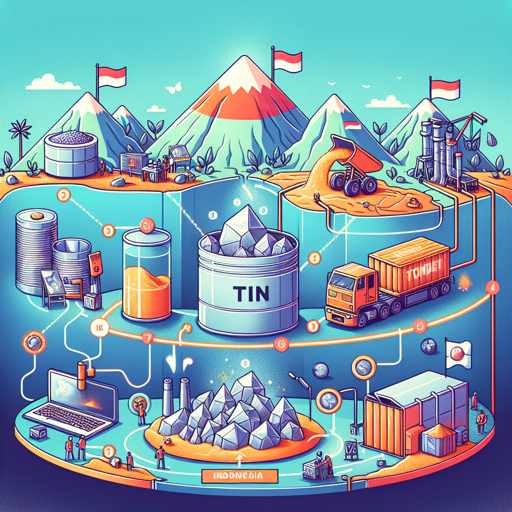Unearthing the Wealth: Indonesia's Tin Reserves
Exploring Indonesia's vast tin reserves and their significant contribution to the nation's economic growth.

Introduction
In the world of precious metals and minerals, tin may not be the first to come to mind. However, this seemingly humble metal plays a significant role in our everyday lives, finding its place in everything from cans to cutting-edge electronics. One of the world’s largest producers of this versatile metal is the archipelagic wonderland of Indonesia. In this blog article, we delve into Indonesia’s vast tin reserves and their contribution to the nation’s economic growth.
Indonesia’s Tin Reserves: A Geological Treasure
Indonesia is blessed with abundant natural resources, and tin is one of its hidden treasures. Primarily found in the islands of Bangka and Belitung, these reserves are estimated to hold over 800,000 tonnes of tin. This significant amount makes Indonesia the country with the second-largest tin reserves globally, trailing only China.
Mining and Economic Growth
Tin mining has been a cornerstone of Indonesia’s economic growth for several decades. The industry employs thousands of people and contributes significantly to the nation’s GDP. PT Timah, the state-owned enterprise, is at the forefront of this mining endeavor, producing over 30,000 tonnes of tin annually.
“Tin is to Indonesia what oil is to some Middle Eastern countries. It is not just a mineral, but a driving force of the economy.” - Anonymous
Indonesian Tin in the Global Market
Indonesia’s tin has a significant impact on the global market. As a leading exporter, the country plays a considerable role in determining global tin prices. The table below illustrates Indonesia’s top export destinations for tin in 2020:
| Country | Percentage of Tin Exports |
|---|---|
| China | 30% |
| Malaysia | 20% |
| Japan | 15% |
| South Korea | 10% |
| Others | 25% |
Challenges and Sustainability
Despite its potential, the Indonesian tin industry faces challenges. Illegal tin mining and associated environmental degradation are pressing issues. The Indonesian government is making efforts to regulate the industry better and promote sustainable practices, balancing economic growth and environmental conservation.
For more information on Indonesia’s tin industry and its impact on the nation’s economy, click here
Conclusion
Indonesia’s vast tin reserves are more than just a geological marvel; they are a lifeline for the nation’s economy. As the world continues to demand tin for various applications, Indonesia’s role as a leading tin producer is likely to remain significant. The challenges are manifold, but with responsible mining practices and sustainable strategies, the tin industry can continue to be a pillar of Indonesia’s economic growth for years to come.